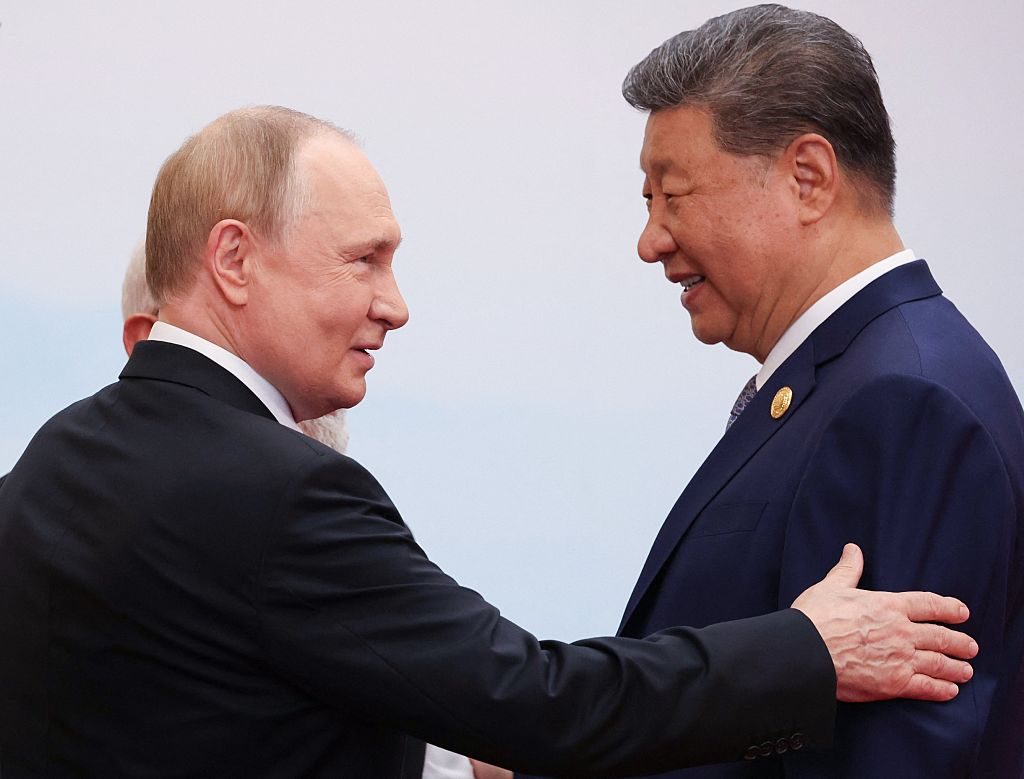When US President Donald Trump counts and recounts — and indeed miscounts — how many global disputes he has resolved, he may wish to add that between India and China to the list. Their bilateral relations have been marred by border skirmishes and Delhi cleaving towards Washington to curb Beijing’s ambitions, yet all that was forgotten at the Shanghai Co-Operation Summit yesterday. Chinese leader Xi Jinping urged that the “two must deepen mutual trust”, be “good neighbors and friends”, and look beyond boundary issues. Lest this love appear unrequited, Indian Prime Minister Narendra Modi reassured his counterpart of the “atmosphere of peace and stability” between them.
The US President can blame himself for pushing Modi into Beijing’s arms. Trump offended India in June by hosting the army chief of its arch-rival Pakistan, before hitting Delhi with high tariffs over its purchases of Russian oil and weapons. Not unreasonably, India feels singled out, given that Trump has himself pursued warmer relations with the Kremlin, China remains the biggest purchaser of Moscow’s oil, and Washington initially encouraged Delhi to buy from Russia. So why target India? Perhaps due to Modi’s refusal to back Trump’s claim that he engineered this year’s India-Pakistan ceasefire and to nominate him for a Nobel Peace Prize.
As additional proof that the summit was hosting an axis of upheaval, Russian President Vladimir Putin joined his Indian and Chinese counterparts for a highly public trilateral chat marked by laughter and hand-holding. Trump’s plans to divide China and Russia are unlikely to succeed any time soon. For his part, Xi clearly understood the brief: the SCO has served as a counterweight to Western-led blocs such as Nato, and he used it to present an alternative to American unilateralism, with China at the helm.
He proposed a new “Global Governance Initiative”, rallied against “hegemony”, and called for the creation of an SCO development bank that would help circumvent the US dollar. Presenting Beijing as the more stable and predictable global leader, he announced foreign aid at a time when the US is cutting back and threw his weight behind the “multilateral trading system” as Washington launches trade wars.
China may well be looking for another area in which it can rival America’s influence. Putin discussed the Ukraine war with his Chinese and Indian counterparts, and will be eager to assess Beijing’s readiness to continue exporting weaponry and dual-use components. Xi remains worried about the involvement of North Korea, fearing closer cooperation between South Korea, the US, and Japan.
Putin will further seek to persuade China to offer post-war security guarantees and peacekeepers. Beijing has expressed an interest in playing a “constructive role” and has privately signaled its willingness to send troops, while Trump is reportedly on board with the idea. Europe has reservations and Ukraine is opposed, yet their objections will falter in the face of America’s determination not to put boots on the ground, Russia’s rejection of Western troops in Ukraine, and a divided Europe’s own inability to put up a strong force.
What would Beijing get out of it? Deploying forces in Europe would constitute a strategic advantage for China to the detriment of the US’ own global presence, simultaneously boosting Beijing’s position as a competitor to American military power. The ability to side with Russia in the event of any clashes would give China leverage over Moscow in their own bilateral ties, reinforcing the Kremlin’s status as the “junior partner”. And then there is Taiwan. Europe in particular would struggle to muster any real opposition to Beijing’s intimidation — or even invasion — of Taiwan when the security of the continent hinges on the whims of Xi Jinping.
On Wednesday, Putin and Kim Jong Un will be guests of honor at a parade commemorating the 80th anniversary of victory over Japan, an attempt by Xi to reshape history in such a way as to exclude the Allies. It is not the only war in which Beijing is forcing out the West, with the leadership bound to see the strategic benefits of ensuring peace in Ukraine. Yet China always has one eye across the water. It may help end one war of territorial conquest by a powerful neighbor in order to spark the next.











Join the discussion
Join like minded readers that support our journalism by becoming a paid subscriber
To join the discussion in the comments, become a paid subscriber.
Join like minded readers that support our journalism, read unlimited articles and enjoy other subscriber-only benefits.
Subscribe